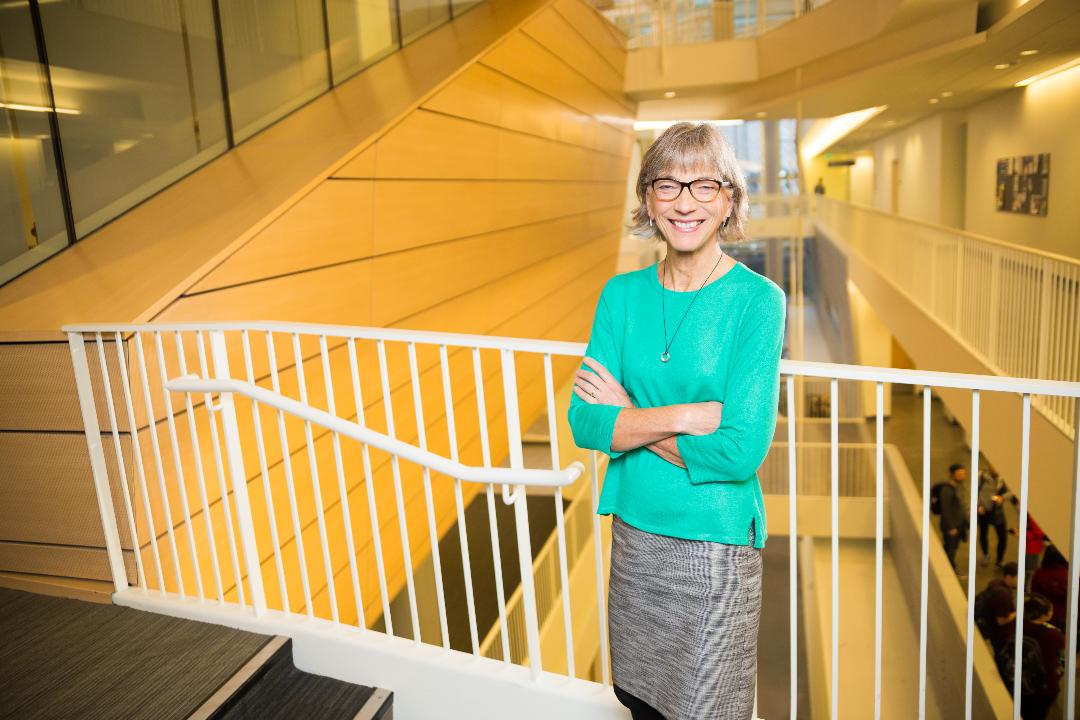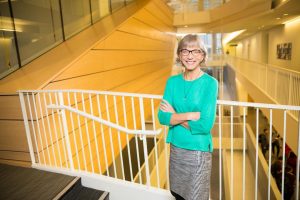Oregon Study Seeks to Find Financial Behaviors That Could Predict Dementia in the Elderly

Kathy Wild, PhD. (Photos courtesy of OSHA)
Changes in the way older people handle their finances could be a sign that they are developing Alzheimer’s or another form of dementia, studies suggest.
An associate neurology professor in Oregon is taking the research a step further by trying to determine the types of behavioral changes that should set off alarm bells, versus the behaviors that family members needn’t worry about. For example, unexpectedly withdrawing large sums of money is likely to fall into the alarming category, while occasionally forgetting to pay a bill may be of little concern.
Kathy Wild, PhD, of the Oregon Health & Science University (OHSU) School of Medicine in Portland, hopes to find cognitive-test markers that may be related to changes in the financial behavior of older adults, she told Alzheimer’s News Today in an interview. This could help spot early difficulties in performing activities essential to independent living.
“We’re looking at the connection between very early cognitive decline — not diagnosed and not even detected — and financial behavior over the course of a year,” she said.
Wild, who has a doctorate in health psychology from New York’s Yeshiva University, came up with a unique design for the two-year study, which she is conducting with a grant from the National Institutes of Health.
EverSafe, a fraud detection company, is providing its software for a year to the study’s 140 participants — whose average age is in the mid-70s — as well as to their families and to Wild’s team. The software generates alerts on anomalies in financial behavior in real time, and also sends the research team weekly reports on each participant’s alerts.
“EverSafe looks at a ton of financial behavior activity,” Wild said, everything from “how many alerts are triggered on a person, to how active they are in online banking, to what kinds of alerts they are getting.”
Howard Tischler founded EverSafe after discovering that telemarketers had persuaded his mother, whom he suspected was experiencing cognitive decline, to make thousands of dollars’ worth of unnecessary credit card purchases. He decided to come up with an online banking monitoring tool to prevent financial fraud of the elderly.
If EverSafe alerts suggest that a participant in Wild’s study is about to become a victim of fraud, or is engaging in other worrisome financial behavior, her team notifies that participant and his or her family.
The team doesn’t discuss routine alerts with participants because this could prompt changes in their financial behavior, introducing bias into the study.
Results expected in 2021
Older people who test in the normal or mild cognitive-impairment ranges are taking part in the study, which began in April 2019, but those diagnosed with dementia are excluded.
A research assistant walks participants through EverSafe at the start of their enrollment.
Participants take cognitive tests at the beginning and end of the study so Wild’s team can determine any declines in memory, judgment, reasoning, or the ability to think about multiple topics at the same time.
Since participants are joining the study at different times, the team will wait until January 2021 to begin analyzing the combined data, with results expected in April 2021.
“Although we don’t expect a diagnosis of dementia to come out of our study, we expect we could see cognitive decline in up to 10% of those in our study,” Wild said.
By analyzing the data collected by the EverSafe software from all the participants, the team hopes to identify half a dozen markers that could signal early cognitive decline.
“These markers would allow us to start talking to patients and families about changes they might make,” said Wild. “Once there’s a diagnosis of dementia, then someone’s paying attention to an elderly person’s behavior …. if the person is at home, and things are failing a little at a time, but they don’t have a diagnosis and someone is not supervising their finances, they could get in trouble.”
Wild has focused on aging and dementia for more than 30 years. She joined OSHU, home of one of the NIH’s 32 Alzheimer’s Disease Research Centers, following her PhD program and has been there since. As a graduate student at Yeshiva, she took part in the trailblazing Bronx Study on Aging, whose key finding was that older people who engage in cognitively challenging leisure activities have lower rates of dementia.








